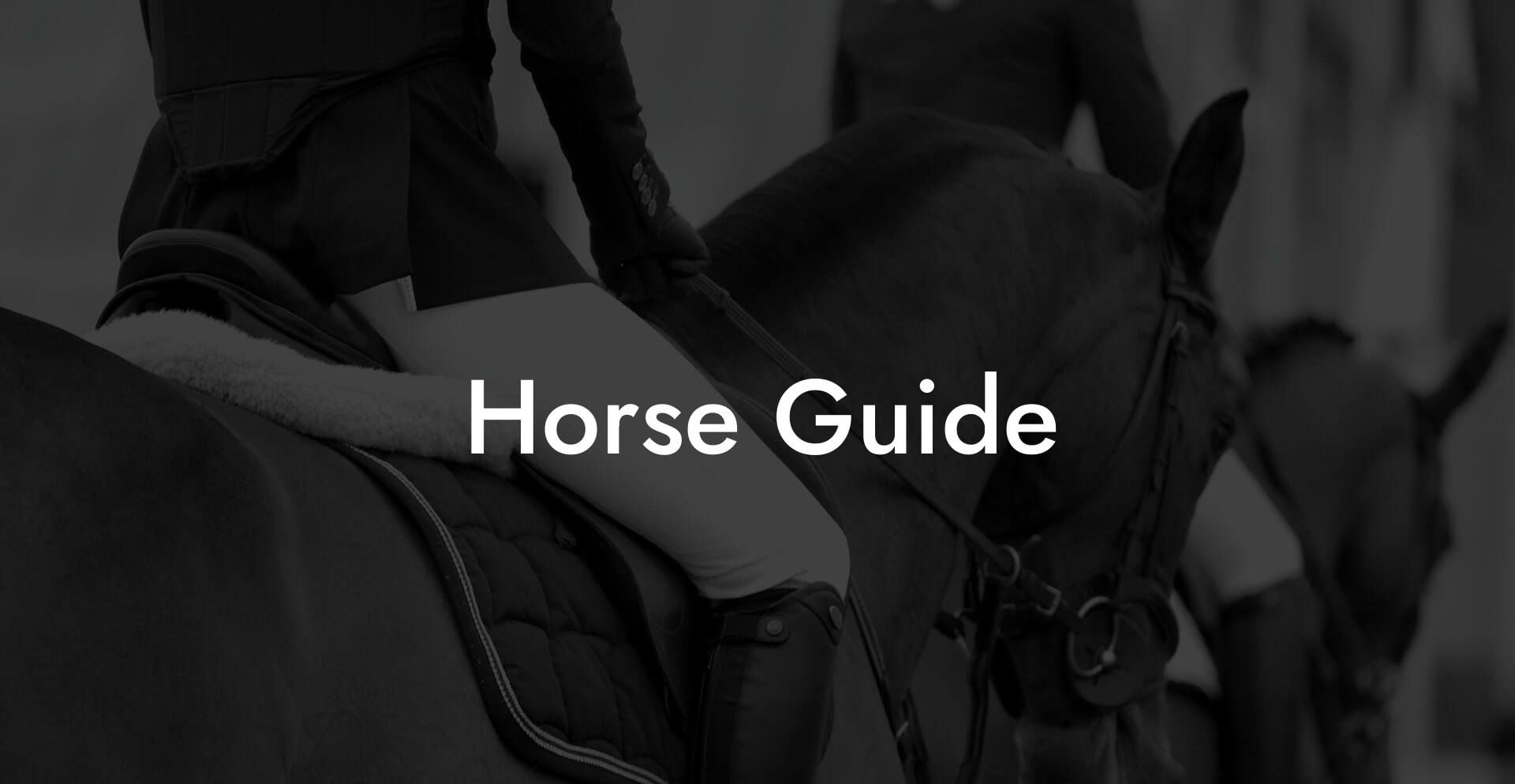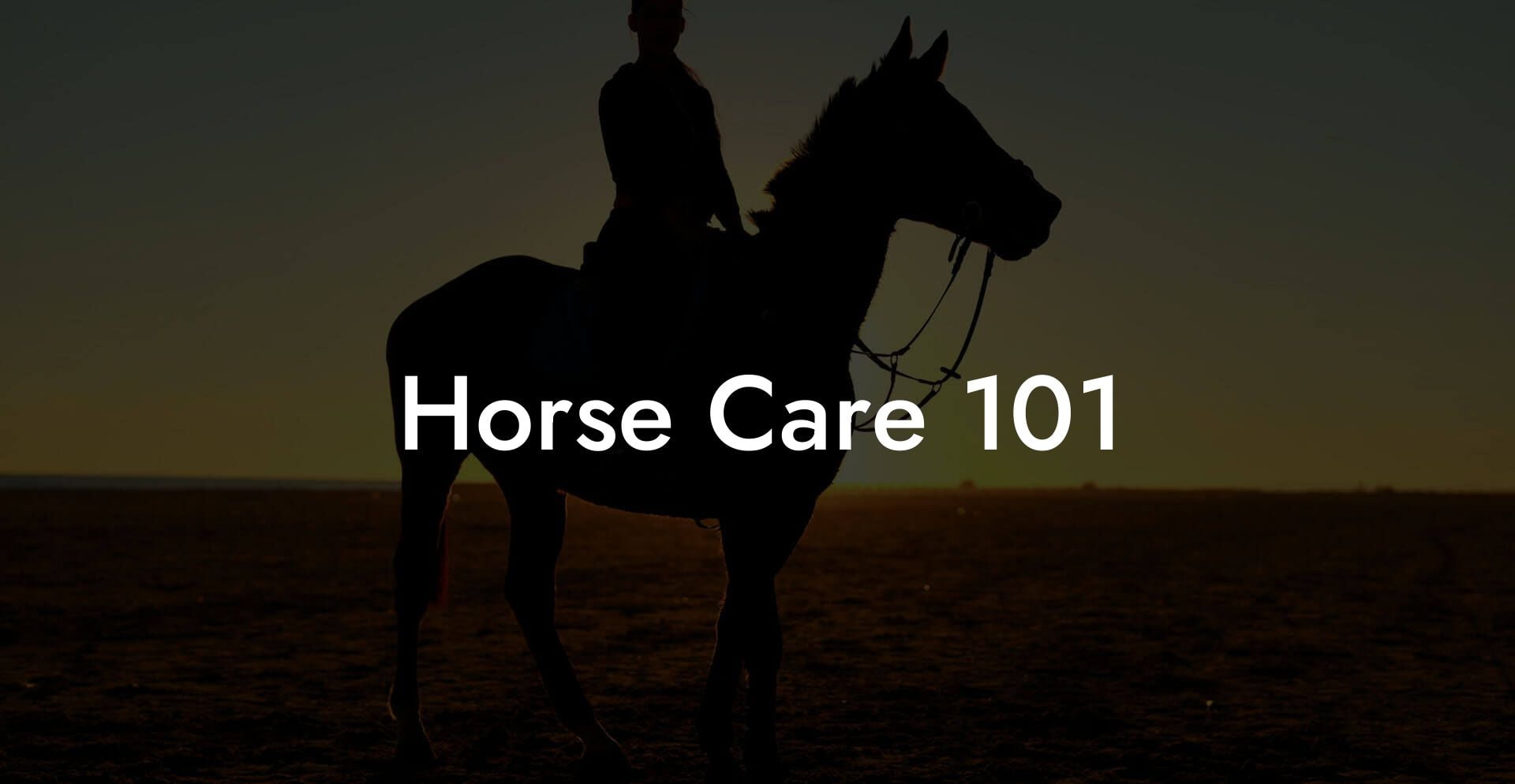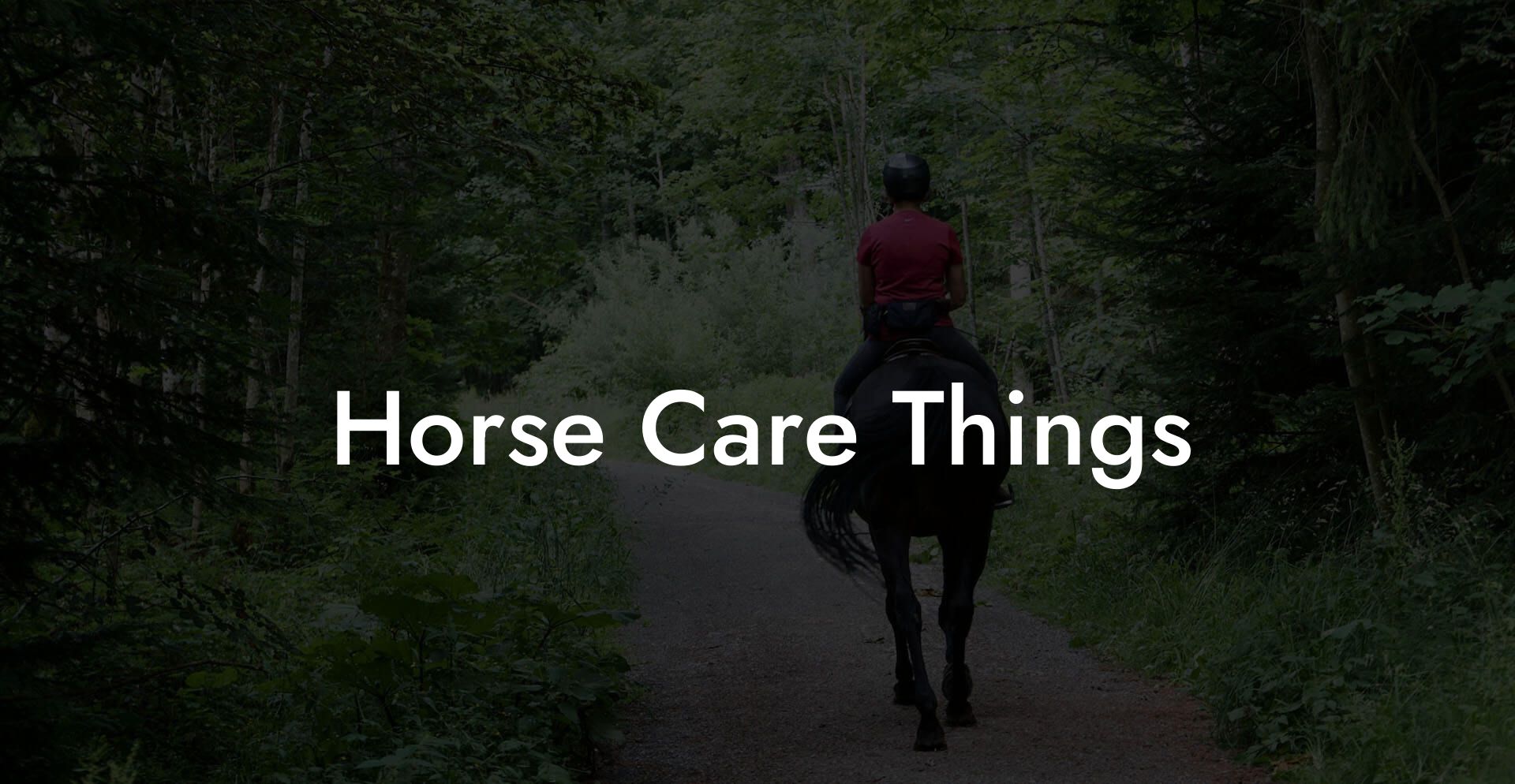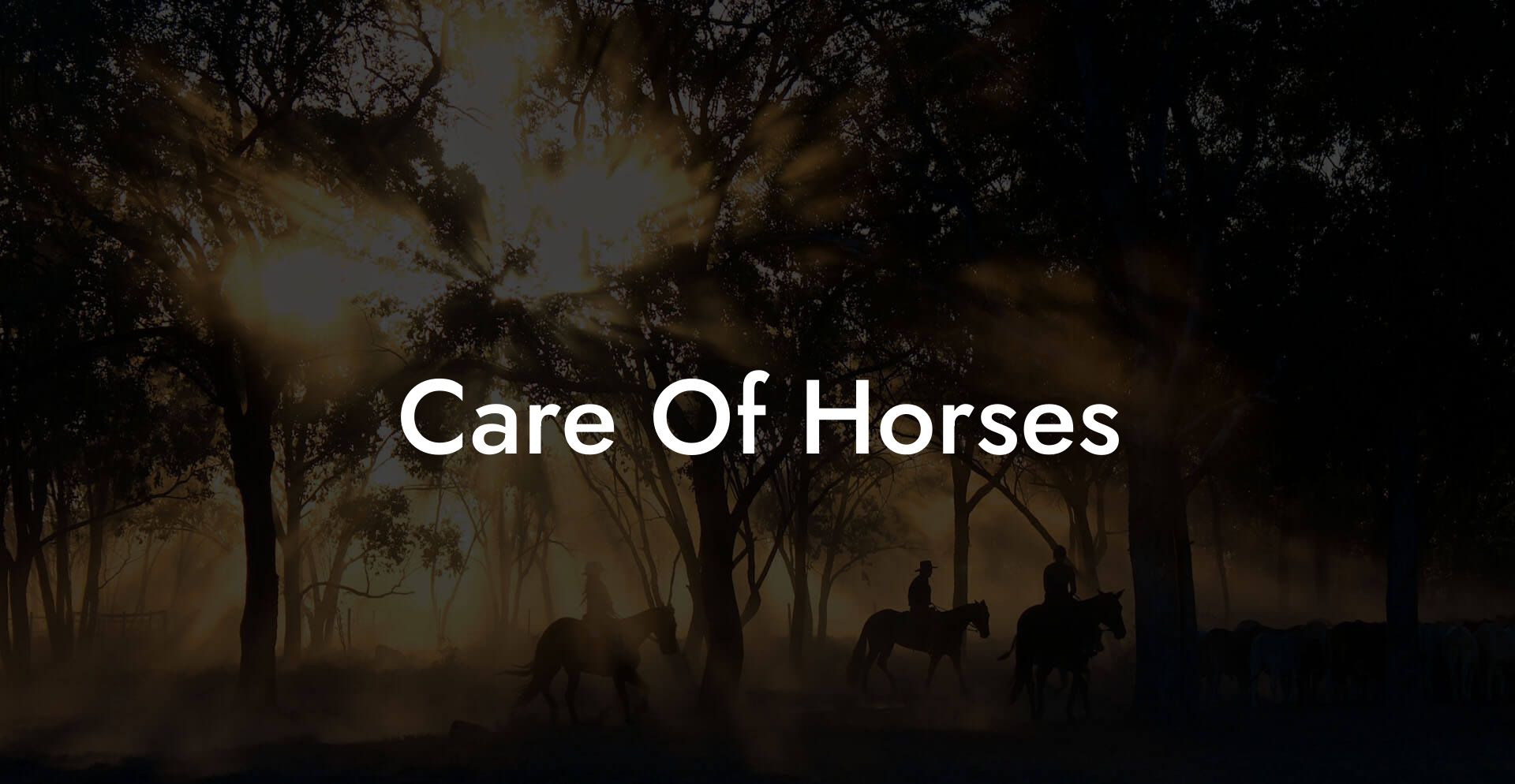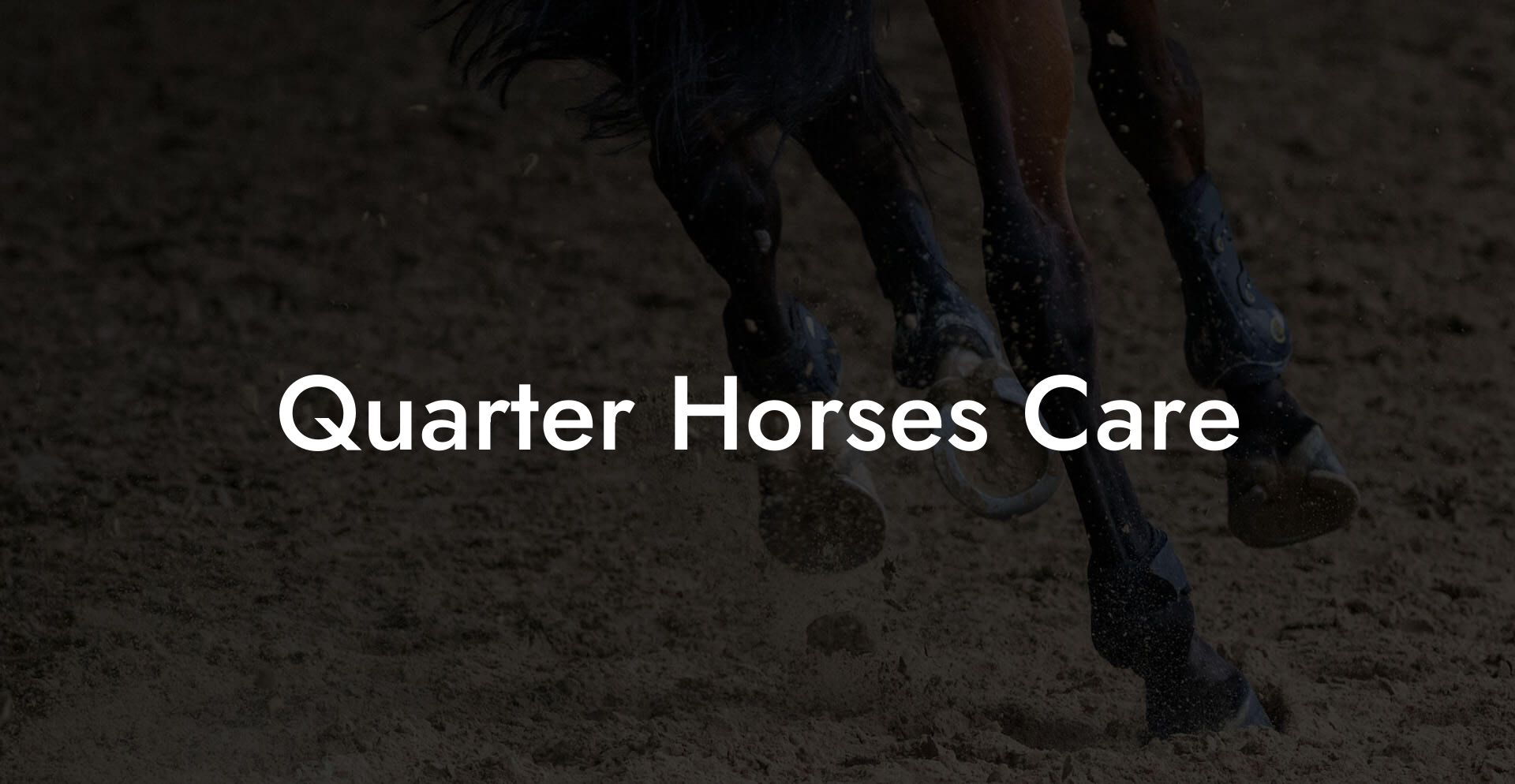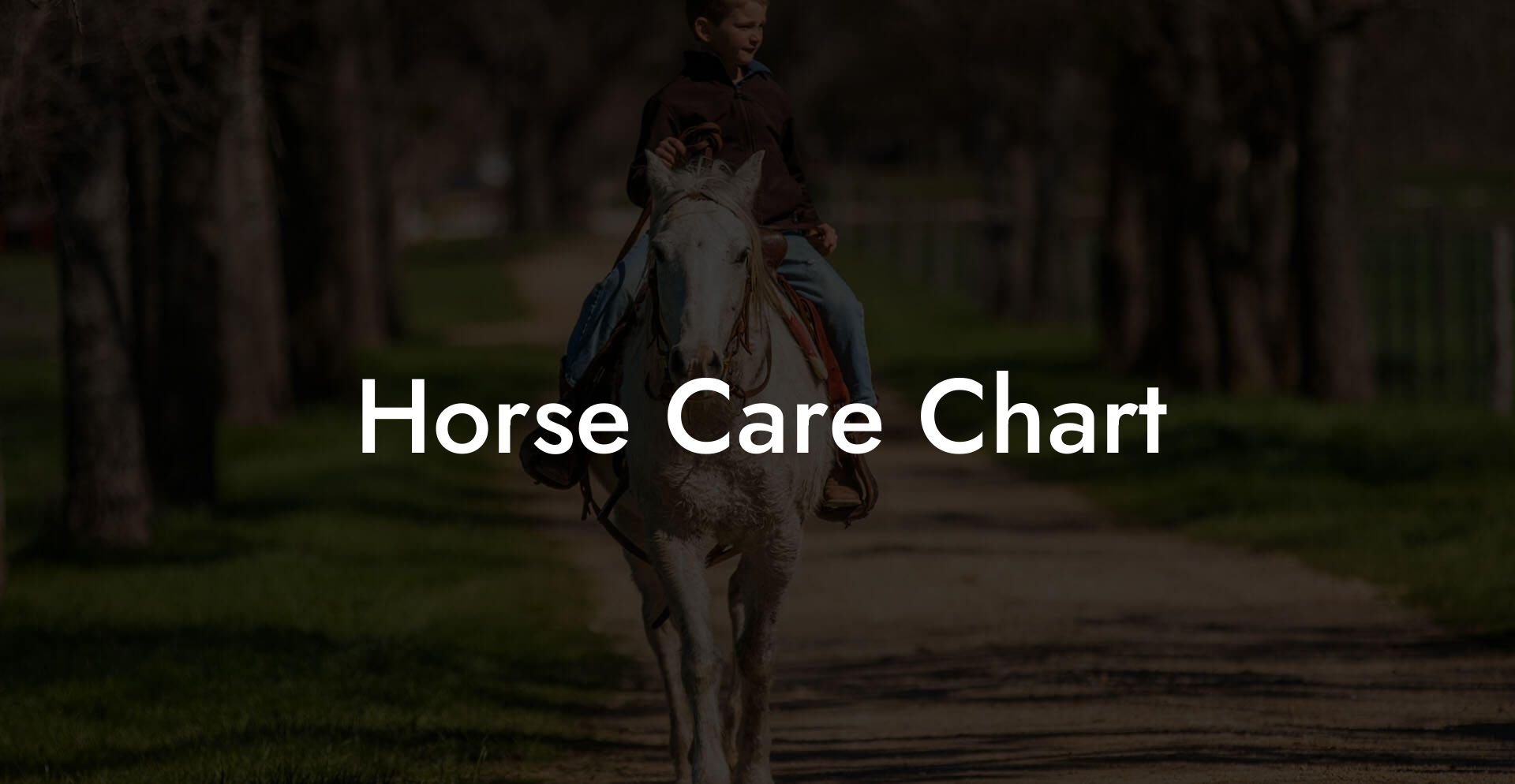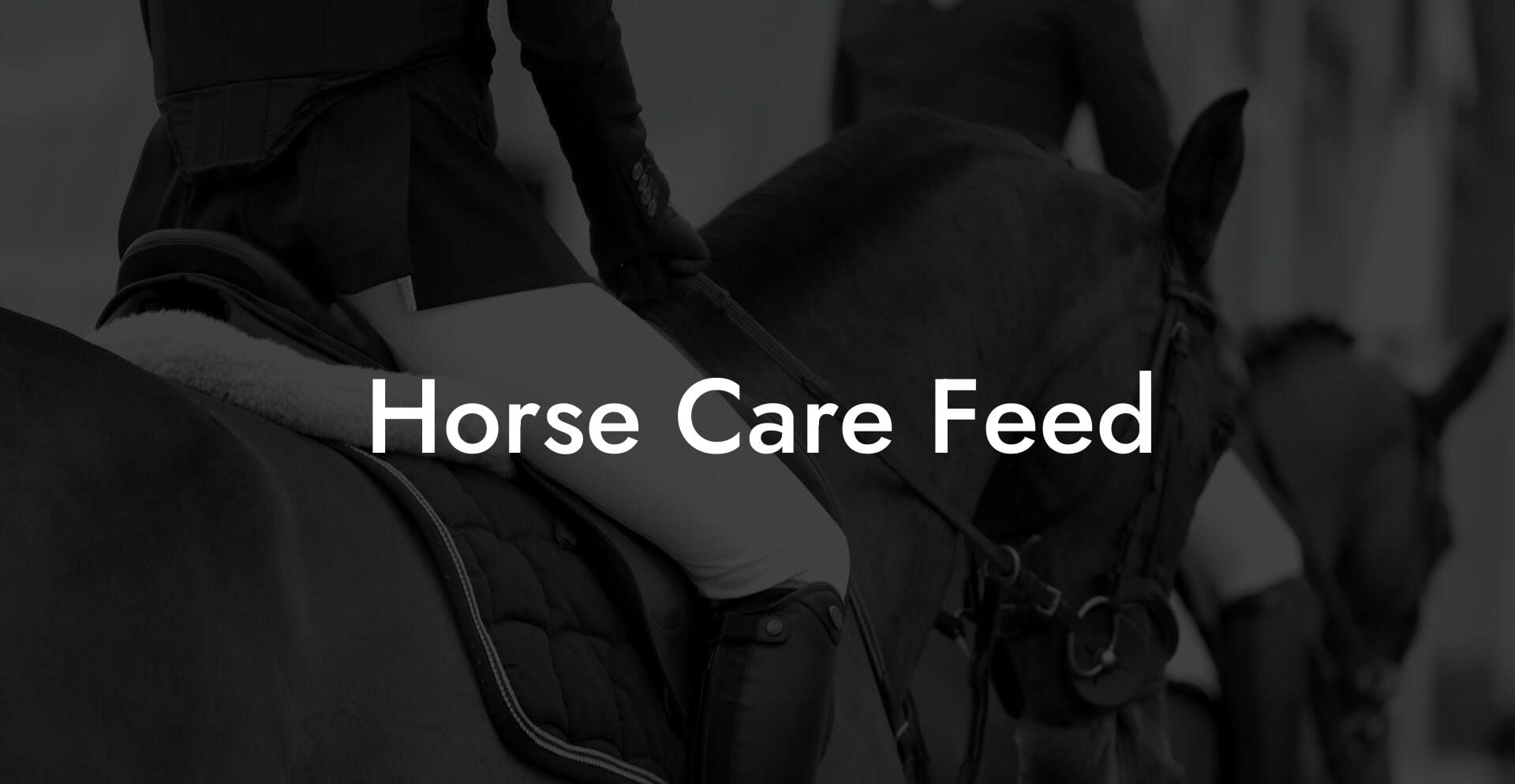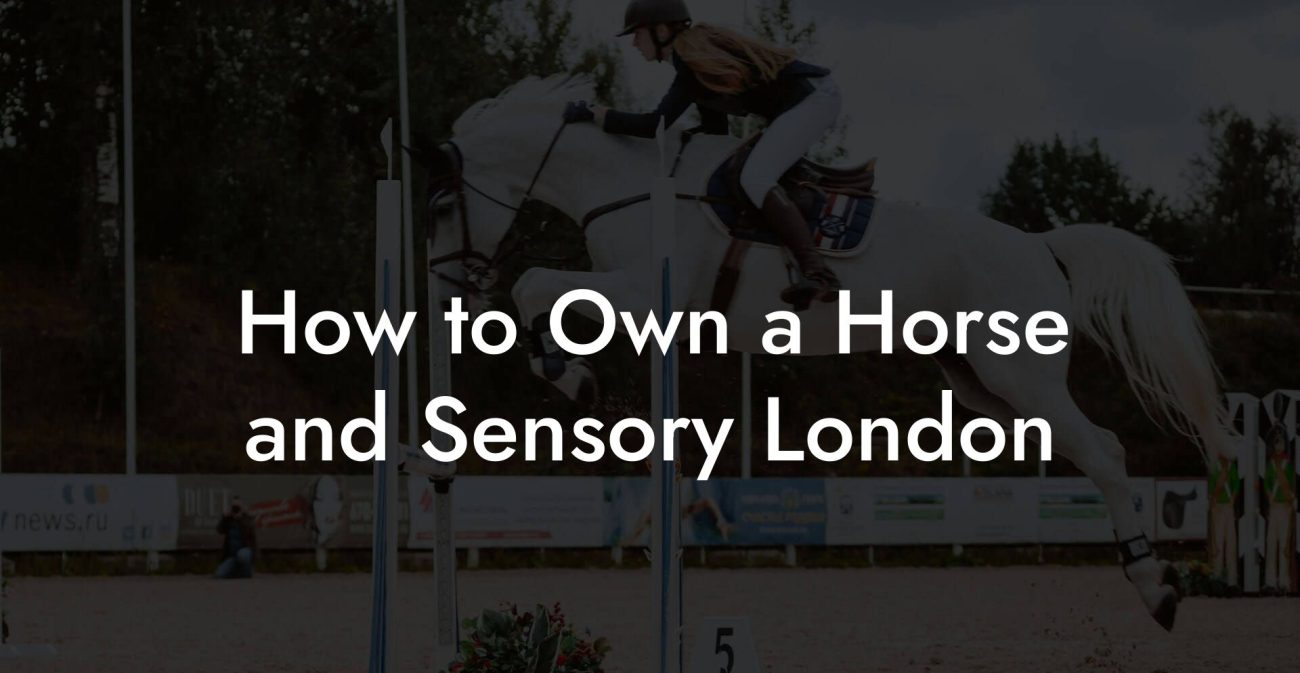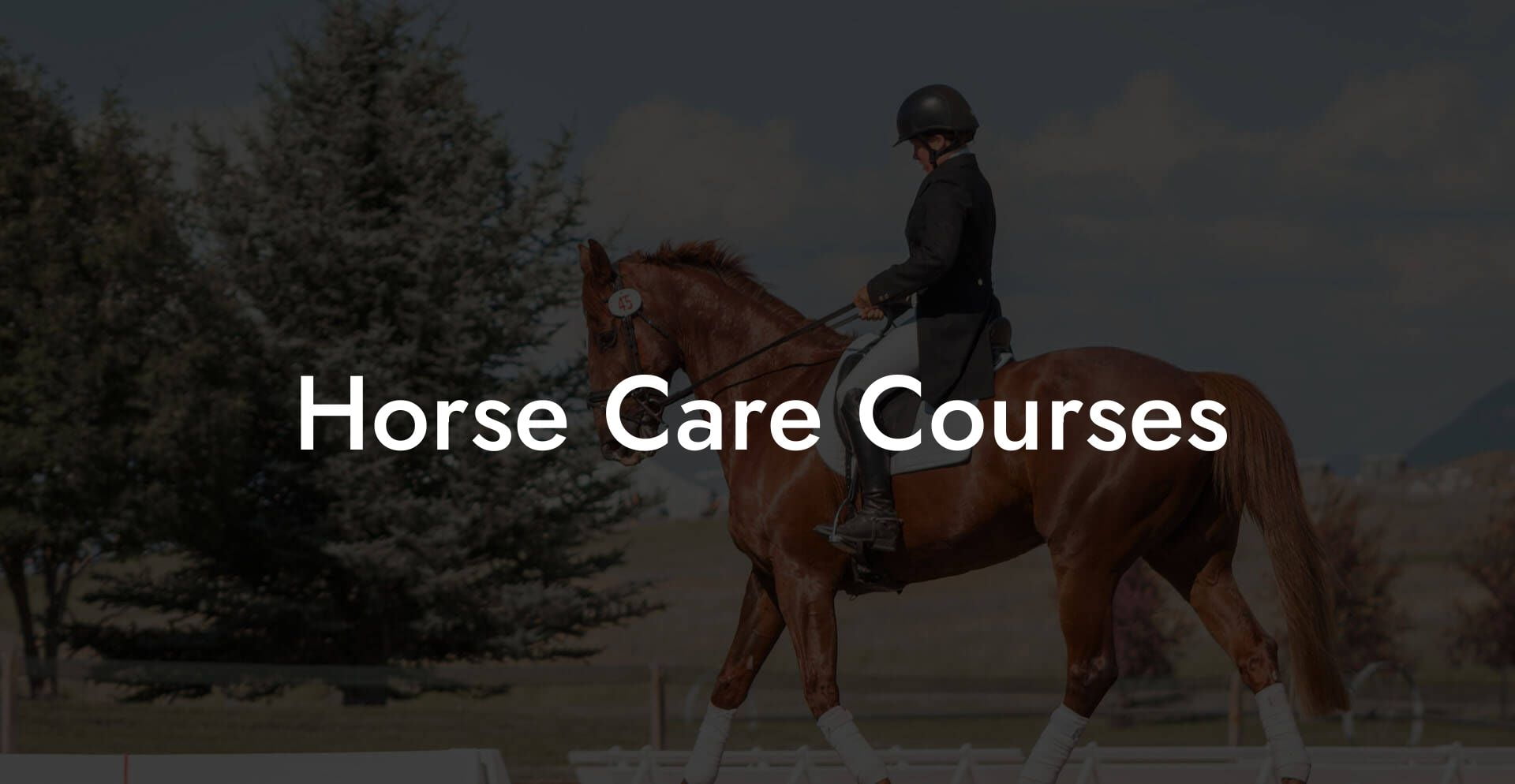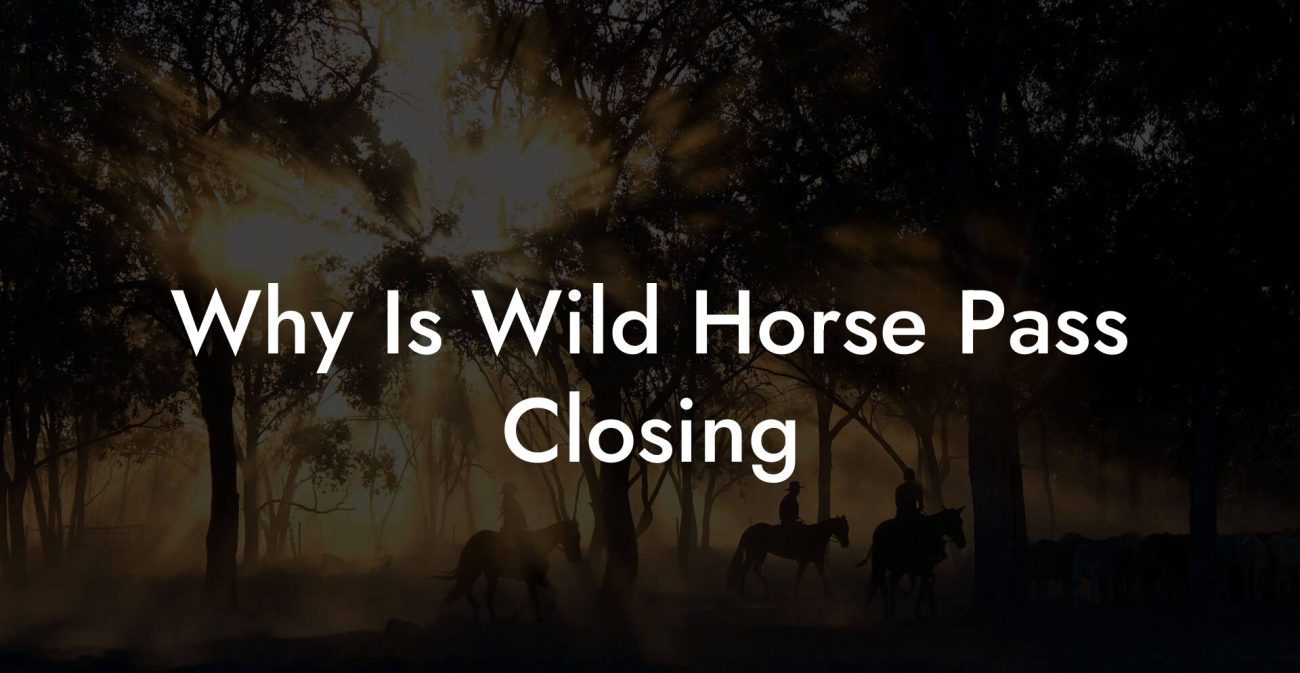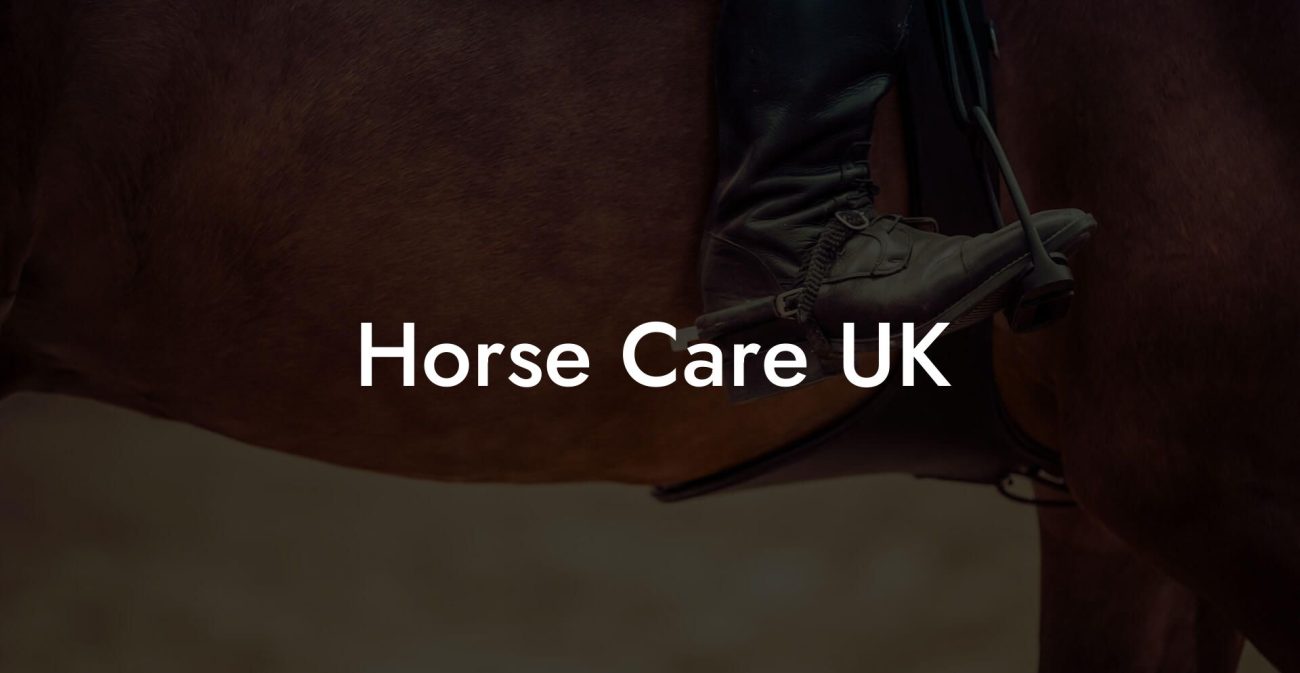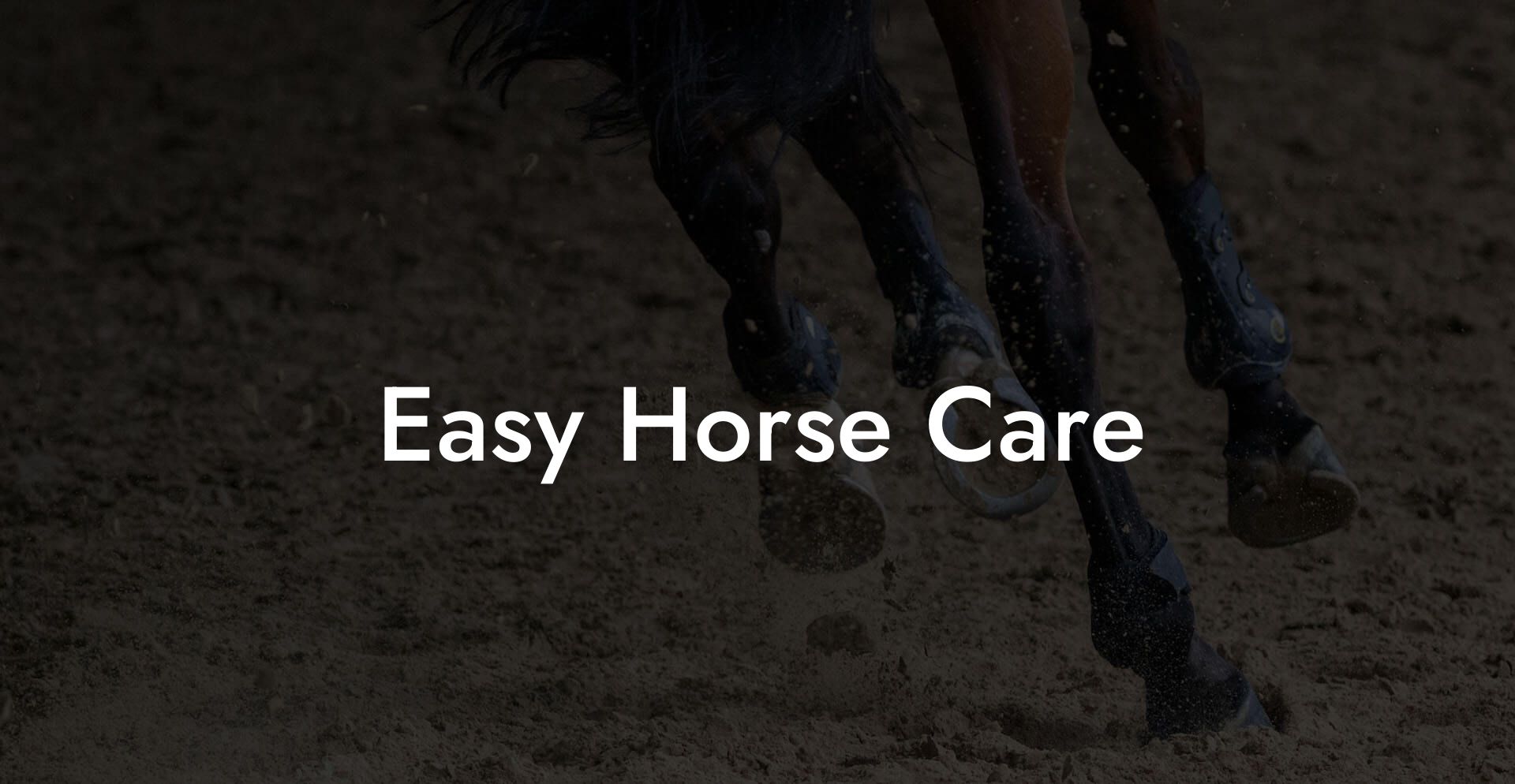Ever thought of strapping on your boots and diving headfirst into the world of horse care, where every gallop is an adventure and every neigh tells a story? This isn’t your grandma’s stable routine, this is a vibrant, hands-on guide that taps into the bold spirit of Gen-Z and the energy of millennials who are all about balance, connection, and living life at full trot. Whether you're a seasoned rider or a newbie exploring equestrian life, this Horse Guide is your ultimate ticket to learning everything from nutrition and grooming to training, stable management, and holistic care for your equine friend.
Quick Links to Useful Sections
- Understanding Your Equine Companion: More Than Just a Horse
- Horse Nutrition: Fueling Peak Performance and Lustrous Coats
- Grooming and Hygiene: Keeping Your Horse Shining Inside and Out
- Stall and Stable Management: Creating a Home That’s Second to None
- Training and Handling: Building Trust and Communication
- Exercise and Fitness: Tailored Workouts for Equine Excellence
- Health and Veterinary Care: The Backbone of Lifelong Wellbeing
- Holistic and Alternative Approaches: Integrating Mind, Body, and Hoof
- Riding and Equestrian Sports: The Thrill of the Ride
- Building a Bond: The Emotional Connection Between You and Your Horse
- Resources and Community Support: Your Next Steps
- Frequently Asked Questions About Horse Care
- Your Journey to Exceptional Equine Care
Understanding Your Equine Companion: More Than Just a Horse
Horses are magnificent creatures, rich in personality and history, that combine raw power with an inherent grace. They’re not just animals, they’re partners and friends in the truest sense. Understanding your horse begins with appreciating their instincts, body language, and needs, not to mention their athletic prowess and playful quirks.
For the modern horse enthusiast, it’s crucial to realize that caring for a horse involves an ongoing dialogue, one that encompasses physical care, emotional bonding, and an understanding of the natural rhythms of equine life. Think of it as curating a lifestyle for both of you that thrives on trust, respect, and mutual adventure.
The key is to blend practical horse care advice with a spirited approach that resonates with today’s fast-paced yet mindful generation. Let’s dig into what makes your horse tick, how you can communicate even when words fail, and the behind-the-scenes aspects of equine behavior that transform horse care into an art form.
Horse Nutrition: Fueling Peak Performance and Lustrous Coats
Just like us, horses need the right kind of fuel to power through long rides, playful runs, and even those lazy days in the pasture. Nutrition is the cornerstone of equine health, and optimizing your horse's diet can lead to better performance, a glowing coat, and an overall zest for life.
Equine nutrition isn’t about bland hay and endless pasture grazing, it’s about a dynamic, balanced diet that includes the perfect mix of forages, grains, proteins, and essential vitamins. The secret sauce here is understanding the specific needs of your horse based on age, activity level, and even temperament.
Here are some pointers to keep your horse’s nutritional needs in check:
- Forage First: The bulk of a horse’s diet should be forage-based. High-quality hay or pasture grass provides a natural source of fiber essential for digestive health.
- Grains and Concentrates: Supplement with grains like oats, barley, or specially formulated pellets when extra energy is needed, especially for active or growing horses.
- Vitamins and Minerals: Ensuring a balanced intake of nutrients such as calcium, phosphorus, and vitamins A, D, and E is crucial. Adjust supplements based on veterinary advice.
- Hydration: Never underestimate the power of water. Clean, fresh water is essential, and adding electrolytes during intense workouts helps maintain stamina.
Integrating these elements into your horse’s diet will not only keep them healthy but also boost their mood and performance. For those who love DIY, consider creating a custom feed plan with your veterinarian’s input to accommodate unique dietary needs.
Grooming and Hygiene: Keeping Your Horse Shining Inside and Out
Grooming is more than just a daily chore, it’s an essential ritual that deepens the bond between you and your horse. From brushing to bathing to mane and tail maintenance, proper grooming not only keeps your horse looking its best but also plays a vital role in their overall health.
Why is grooming such a big deal? First off, it helps remove dirt, sweat, and loose hair, which can cause discomfort or skin irritations if left unchecked. It also allows you to inspect your horse for any injuries, lumps, or signs of infection. Plus, a regular grooming routine is a perfect time to share personal moments and build trust with your equine buddy.
Try incorporating these grooming tips into your routine:
- Daily Brushing: Use a soft brush for their coat and a stiffer one for the mane and tail. Start with a light touch and gradually increase pressure, allowing your horse to relax into the process.
- Hoof Care: Clean your horse’s hooves daily to prevent parasites and infections. Regular visits from a farrier (at least every 6-8 weeks) are essential to maintain proper hoof balance.
- Bathing: While not necessary every day, a thorough bath after particularly dusty days can be beneficial. Use horse-specific shampoos to avoid drying out the skin.
- Massage Therapy: A gentle massage can soothe sore muscles and increase blood circulation, think of it as a spa day for your horse.
Embrace grooming as a chance to unwind, and remember, your horse’s shine is a reflection of the love and care you put into every aspect of their life.
Stall and Stable Management: Creating a Home That’s Second to None
A well-managed stable is the unsung hero behind a healthy, happy horse. Whether you’re working with a sprawling barn or a cozy pasture setup, the environment you create can have a huge impact on your horse’s wellbeing. The concept is simple: design a space that’s safe, comfortable, and conducive to both physical and mental health.
Modern stable management involves strategic planning and ample care for everything from ventilation and cleanliness to the selection of bedding materials and regular maintenance. Think of your stable as a mini ecosystem, every element, from temperature control to lighting, plays a role in the overall harmony of the space.
Here’s how to take your stable management skills from average to outstanding:
- Proper Ventilation: Ensure that your stable has good airflow to prevent respiratory issues. Clean, fresh air is vital to your horse’s health.
- Bedding and Comfort: Use high-quality bedding such as straw, shavings, or specialized equine mats. A soft, clean bed can reduce stress and help your horse sleep better.
- Regular Cleaning: Clean the stable daily to remove manure, spilled feed, and dust. This practice minimizes the risk of infections and creates a pleasant environment.
- Safety Checks: Regularly inspect fences, gates, and stall doors to make sure there are no hazards. A secure environment is the first step in preventing accidents.
- Environmental Enrichment: Add some variety with safe toys, mirrors, or even a treat puzzle to keep your horse mentally stimulated during their downtime.
Combining these elements creates a haven where your horse can relax, recharge, and, most importantly, feel at home.
Training and Handling: Building Trust and Communication
The bond between you and your horse is built on mutual respect, trust, and clear communication. Effective training and handling are the foundations of this relationship, creating a partnership that’s as much about emotional connection as it is about riding skills.
Training isn’t about dominance, it’s about guidance. Modern horsemanship encourages a respectful, empathetic approach where the horse is viewed as a partner in the learning process. By tuning into your horse’s signals, you can develop techniques that make training enjoyable and stress-free for both parties.
Consider incorporating these training tips into your routine:
- Gentle Groundwork: Start training with basic groundwork exercises that help establish boundaries and mutual respect. Longeing, leading, and desensitization exercises are excellent starting points.
- Consistent Cues: Use clear, consistent signals and rewards. Positive reinforcement, like treats, praise, or a gentle pat, trains more effectively than punishment.
- Short Sessions: Keep training sessions short and engaging. Horses have shorter attention spans than humans, so quality trumps quantity.
- Patience and Persistence: Not every lesson is a home run. Accept that progress may be gradual and celebrate small victories along the way.
- Use of Modern Tools: Leverage smart gadgets and apps designed for horse training to monitor progress and refine techniques.
Whether you’re preparing for competitions or simply deepening your connection at the riding arena, a dedicated training plan that emphasizes empathy and understanding is key to a thriving partnership.
Exercise and Fitness: Tailored Workouts for Equine Excellence
Just as humans benefit from regular exercise, horses need a well-planned fitness regimen to stay strong, agile, and mentally sharp. Equine exercise is not only about hours in the arena or long rides on country trails, it’s a multifaceted approach that helps prevent injuries, maintain cardiovascular health, and boost overall vitality.
The beauty of equine fitness lies in its variety. For horses, a balanced routine might include periods of intense exercise, such as interval training or hill work, mixed with restorative periods of light activity and mindful movement. This variety not only keeps your horse physically fit but also combats boredom and builds resilience.
Effective exercise plans should consider:
- Warm-Ups and Cool-Downs: Just like athletes, horses need to warm up before strenuous exercise and cool down afterward to prevent muscle strain and injury.
- Interval Training: Switching between gallops, trots, and walks can improve cardiovascular health and build muscle strength.
- Flexibility Workouts: Incorporating stretching exercises can enhance your horse’s flexibility and help prevent stiffness or injuries.
- Cross-Training: Engage your horse in different activities such as trail riding, jumping, or even swimming when available. This variability keeps the body dynamic and well-rounded.
- Monitoring Fitness: Use modern fitness trackers and consult with your equine expert to tailor workouts that match your horse’s age, condition, and training level.
A dynamic routine that combines physical activity with periods of rest ensures that your horse not only performs at its best in competitions but also remains joyful and healthy throughout its life.
Health and Veterinary Care: The Backbone of Lifelong Wellbeing
Keeping your horse in stellar health means that a proactive and comprehensive veterinary care plan isn’t optional, it’s essential. Routine check-ups, vaccinations, dental care, and prompt attention to any signs of illness form the backbone of effective horse care.
Modern equine veterinary care has evolved to include a blend of traditional medicine and innovative treatments tailored to the specific needs of horses. Whether it’s managing chronic conditions, treating injuries, or simply maintaining routine care, a trusted veterinarian is your best ally in ensuring your horse’s longevity and comfort.
Here are some key aspects to consider:
- Routine Wellness Exams: Schedule regular check-ups to catch potential issues early. This includes dental work, respiratory exams, and general physical assessments.
- Vaccinations and Parasite Control: Maintain an up-to-date vaccination schedule and use appropriate deworming protocols to safeguard against common infections and parasites.
- First Aid and Emergency Care: Keep a well-stocked equine first aid kit and ensure you’re trained on basic emergency procedures. Knowing how to act in a crisis can be a game-changer.
- Specialized Treatments: Explore advanced treatments when needed, like hydrotherapy, regenerative medicine, or acupuncture, for issues that require a more nuanced approach.
- Holistic Monitoring: Pay attention to subtle changes in behavior, appetite, or movement; these can often be early signs of health issues.
By taking a proactive stance on veterinary care and health monitoring, you’re investing in a partnership where prevention is key, ensuring that every gallop and canter is backed by robust well-being.
Holistic and Alternative Approaches: Integrating Mind, Body, and Hoof
In today’s fast-paced world, many horse owners are embracing holistic and alternative therapies to complement traditional veterinary care. For those who believe in a “natural” approach, integrating elements like acupuncture, herbal remedies, and even equine massage can elevate your horse’s overall health and happiness.
Holistic equine care isn’t just about addressing the physical symptoms, it’s about nurturing the horse’s mind and spirit. After all, a relaxed and happy horse often makes for a healthier one. Integrative practices can include:
- Acupuncture: A time-tested method that involves stimulating specific points on the body, acupuncture has been shown to improve circulation, reduce pain, and enhance overall muscle function in horses.
- Herbal Remedies: Many cultures have long relied on natural herbs to support digestion, inflammation management, and overall systemic balance. Consult with an equine herbalist to determine the best mix for your horse’s needs.
- Equine Massage and Bodywork: Regular massage sessions can relieve muscle tension, improve flexibility, and promote relaxation. It’s like sending your horse for a spa treatment that nurtures both body and soul.
- Energy Healing: Techniques such as Reiki and other energy therapies are gaining popularity among horse enthusiasts. These practices aim to balance the body’s energy fields, fostering a state of calm and enhancing overall well-being.
When coupled with standard veterinary practices, these integrative approaches offer a well-rounded route to peak equine health. And for the modern rider or stable owner, the idea of treating your horse as a holistic being resonates strongly with today’s mentality of balance and natural wellness.
Riding and Equestrian Sports: The Thrill of the Ride
For many, horse care isn’t just about the everyday tasks, it’s also about the exhilaration of riding, competing, and living the equestrian dream. Whether you’re drawn to dressage, jumping, or trail riding, engaging in equestrian sports brings out the competitive spirit and deepens the bond with your horse.
Riding is an art, a sport, and a lifestyle rolled into one. It challenges you physically and mentally, forcing you to sync with your horse through every stride and jump. In today’s digital age, where experiences and personal growth matter more than ever, spending time in the saddle is a surefire way to boost your confidence, relieve stress, and find that perfect balance between adrenaline and tranquility.
Here are some pointers for a top-notch riding experience:
- Proper equipment: Invest in quality riding gear, from helmets and boots to well-fitted saddles. Not only does this enhance performance, but it also ensures safety for both you and your horse.
- Regular Lessons: Even if you’re an experienced rider, continued training, and lessons keep your skills sharp. Consider joining a riding club or taking part in clinics to learn innovative techniques and meet like-minded enthusiasts.
- Warm-Up Routines: Include specific warm-up exercises for both you and your horse. A dedicated warm-up not only improves performance but also reduces the risk of injuries.
- Mindful Riding: Focus on the connection with your horse. Listen to their cues, trust their instincts, and make riding a shared conversation rather than a one-sided performance.
- Embrace Variety: Mix up your routine. Try trail rides, beach rides, or even off-track training sessions to keep the experience fresh and exciting.
The world of equestrian sports is as diverse as it is thrilling. Embrace the challenges, savor the victories, and let every ride remind you why this lifestyle is so incredibly rewarding.
Building a Bond: The Emotional Connection Between You and Your Horse
Beyond the physical aspects of care, there’s a deeply rewarding emotional component to horse ownership. Building a genuine connection with your horse transforms everyday care into a fulfilling relationship rooted in trust, empathy, and mutual respect.
Horses are inherently social animals, and they thrive on positive interactions and consistent routines. Whether through grooming, training, or simply spending quiet time together in the pasture, every moment you invest in your horse deepens the bond between you.
To strengthen this connection, try these approaches:
- Spend Quality Time: Set aside time each day to be with your horse, even if it’s just a few minutes of quiet reflection or a simple pat on the neck.
- Be Patient and Consistent: Trust is built over time. Consistent, gentle interactions help your horse learn that you’re a reliable and caring friend.
- Learn Your Horse’s Language: Every horse has its own set of signals and body language. Understanding these cues, whether it’s a subtle ear twitch or a shift in posture, allows you to respond with empathy.
- Create Rituals: Regular routines such as morning grooming or a pre-ride warm-up become cherished rituals that both you and your horse can look forward to.
- Celebrate the Moments: Whether it's the first time your horse uproots a jump or simply a day of uncomplicated companionship, celebrate every small victory and tender moment.
The emotional journey of horse care is perhaps its most magical aspect. It’s in the quiet glances, the mutual understanding, and the simple joy of being together that the true spirit of equine life shines through.
Resources and Community Support: Your Next Steps
In an age where information is just a click away, the best part of this Horse Guide is the community of like-minded enthusiasts and experts ready to share insights, advice, and encouragement. From online forums and social media groups to local riding clubs and veterinary networks, there are countless resources at your disposal to help you navigate every aspect of horse care.
Here are some key resources to consider as you embark on or continue your equestrian journey:
- Local Riding Clubs: Find or join a local riding club where you can engage with experienced riders, share your experiences, and learn new tips.
- Veterinary Associations: Connect with professional veterinary organizations and specialists who can offer detailed insights into equine health issues, preventative care, and advanced treatments.
- Online Communities: Platforms like equine forums, Facebook groups, and Instagram pages dedicated to horse care are treasure troves of practical advice, inspiring stories, and real-world problem solving.
- Workshops and Clinics: Look out for workshops, clinics, and webinars hosted by equine experts. These events not only provide valuable hands-on training but also help you network with other horse lovers.
- Books and Online Courses: Dive into comprehensive guides and courses curated by top horse care professionals. Whether it’s an in-depth book on holistic equine nutrition or an online video tutorial on stable management, there’s something to fit every interest and skill level.
Remember, the world of horse care is vast and diverse, and no one person has all the answers. Embrace the opportunity to learn from others, share your own experiences, and become a part of the ever-growing equestrian community.
Frequently Asked Questions About Horse Care
Navigating the nuances of horse care can sometimes be perplexing. Here we answer some of the most common questions to help you better understand the multi-faceted art of managing your equine partner.
1. How often should I change my horse’s bedding?
Ideally, bedding should be refreshed daily to keep the stable clean and minimize bacterial buildup, with a deeper clean of the entire stable weekly.
2. What is the ideal diet for a healthy horse?
A balanced diet for a horse typically focuses on good quality forage such as hay or pasture, supplemented with grains or concentrates when necessary, and enriched with vitamins and minerals, always adjusted based on your horse’s specific needs.
3. How essential is regular hoof care?
Regular hoof care is vital. Cleaning hooves daily and scheduling farrier visits every 6-8 weeks can prevent injuries, infections, and long-term musculoskeletal issues.
4. Can I train my horse at home without professional help?
Yes, many basic training aspects can be managed at home with proper guidance and consistency. However, enlisting the help of a professional for more challenging or advanced training is often beneficial.
5. What are common signs that my horse might be unwell?
Indicators include changes in behavior, a drop in performance, alterations in eating habits, and abnormal gait or posture. Regular veterinary check-ups can help catch issues early.
6. How does holistic care benefit my horse?
Holistic care, which can include therapies such as acupuncture, massage, or herbal treatments, works alongside traditional care to promote overall well-being, reduce stress, and enhance recovery.
7. What safety measures should be prioritized in the stable?
Ensure proper ventilation, regularly update and clean bedding, maintain a hazard-free environment, and constantly inspect stall and fence integrity to keep your horse safe.
8. Are there specific exercises tailored for older horses?
Absolutely. For senior horses, low-impact exercises such as slow-paced walking, gentle stretching, and carefully structured physical therapy routines help maintain mobility without causing stress or injury.
9. How do I know if my horse is getting enough mental stimulation?
Signs include a curious and engaged demeanor, reduced stress levels, and a willingness to interact during routine activities. Incorporating new challenges and changing up routines can keep their minds active.
10. Where can I find reliable information about advanced equine care?
Trusted sources include professional veterinary associations, reputable online equine resources, academic journals, and direct advice from expert trainers and veterinarians.
Your Journey to Exceptional Equine Care
Embracing the world of horse care means stepping into a lifestyle that’s as rewarding as it is challenging. Every grooming session, every training exercise, and every moment spent together forms the tapestry of a partnership built on trust, respect, and passion. This journey is not merely about routine; it’s about evolving alongside your horse, learning new skills, and creating memories that last a lifetime.
Modern horse care is dynamic, it’s a blend of time-honored tradition and innovative techniques designed to nurture both the physical form and the spirited heart of your equine companion. Whether it’s mastering the art of a perfect canter, fine-tuning a balanced diet, or simply spending quality time in a beautifully maintained stable, every aspect plays an essential role in the well-being of your horse.
Let this guide be the springboard into your broader adventure in the equestrian realm. Commit to continuous learning, lean on community resources, and above all, let your passion for horses drive you forward. Embrace every challenge as an opportunity, celebrate every small success, and never lose sight of the unique connection that makes horse care so incredibly special.
So, saddle up and dive into the world of horses with an open heart and a curious mind. Your journey to exceptional equine care, filled with learning and growth, begins here and now, gallop forward with confidence, knowing that every step brings you and your horse closer to a brighter, more fulfilling future.

